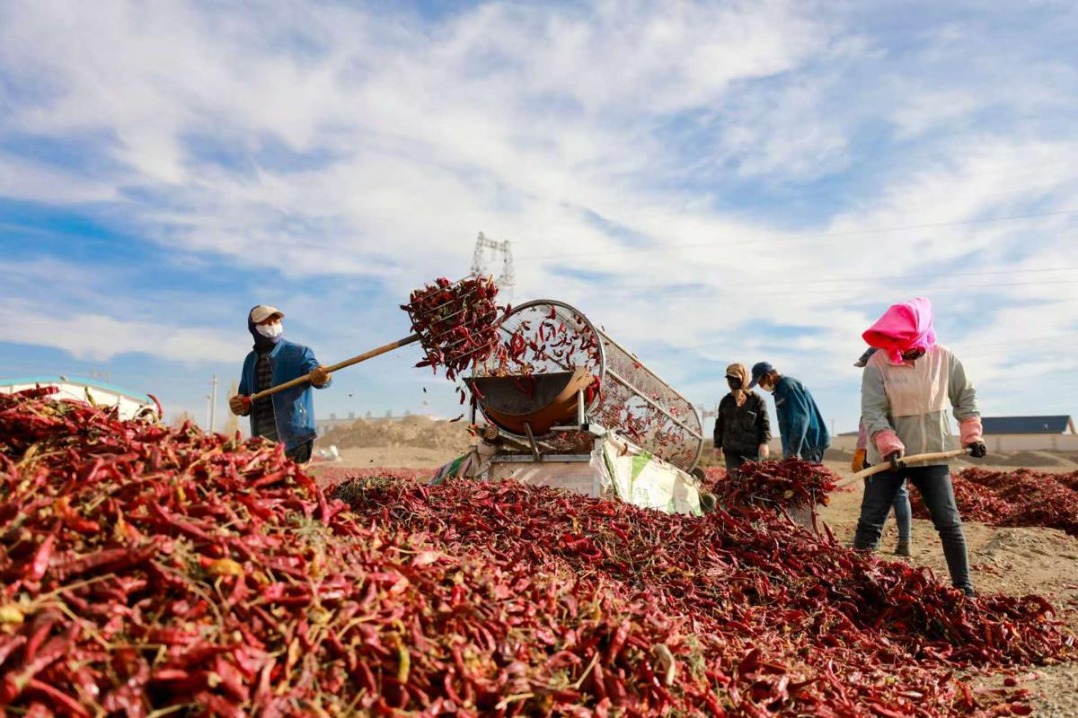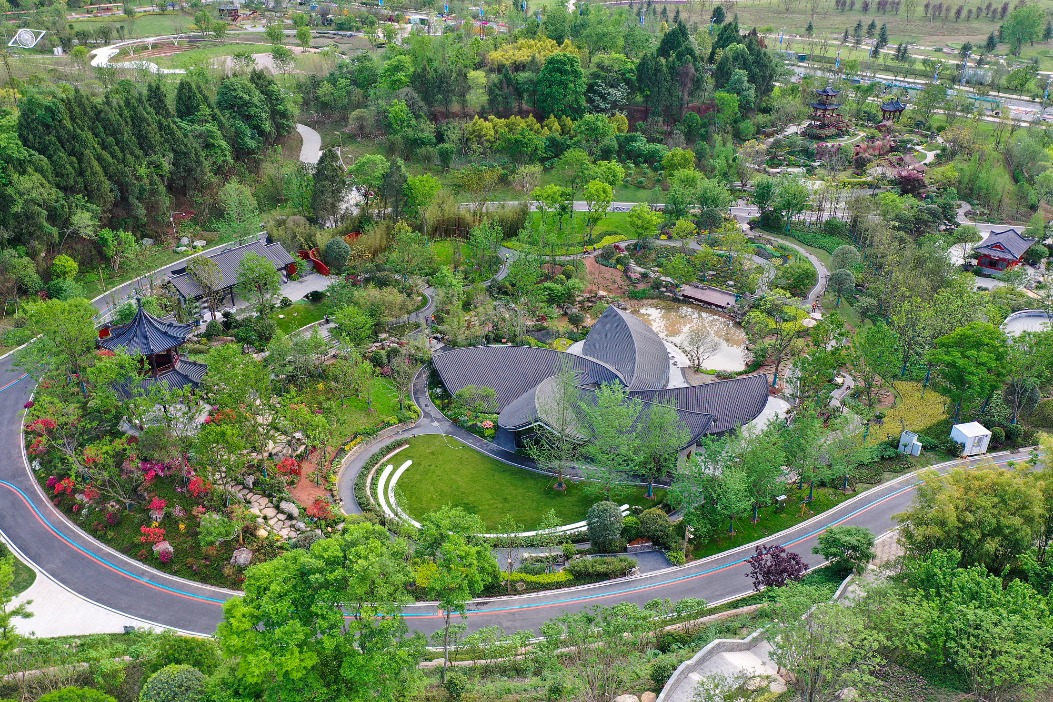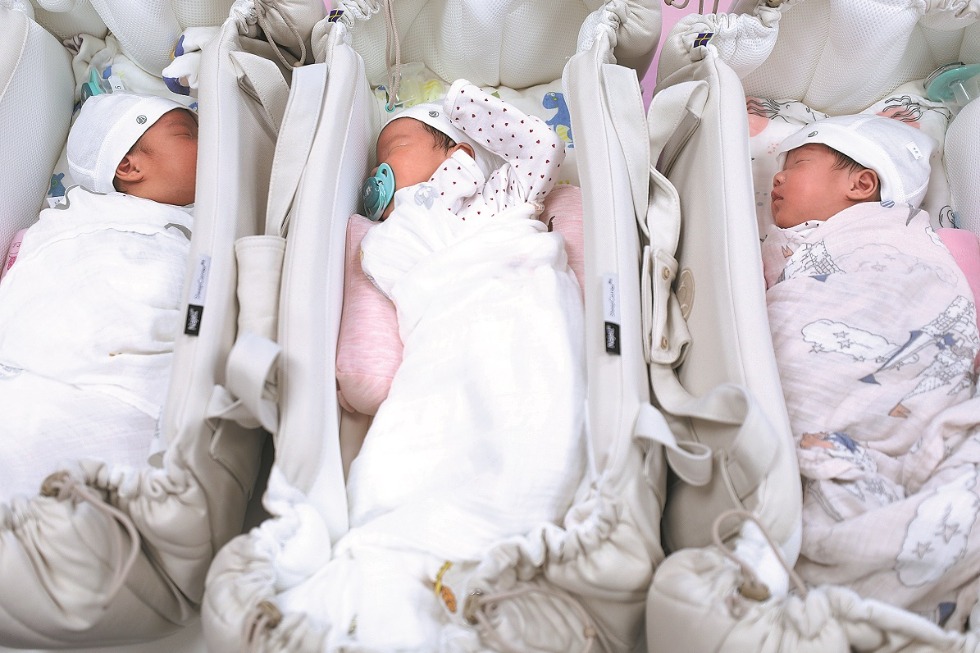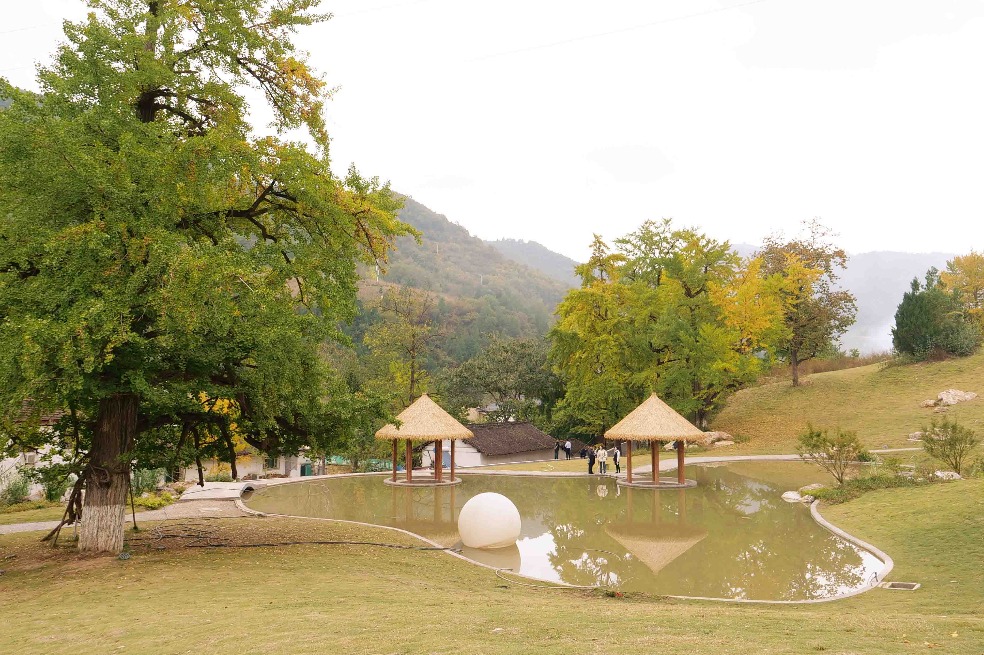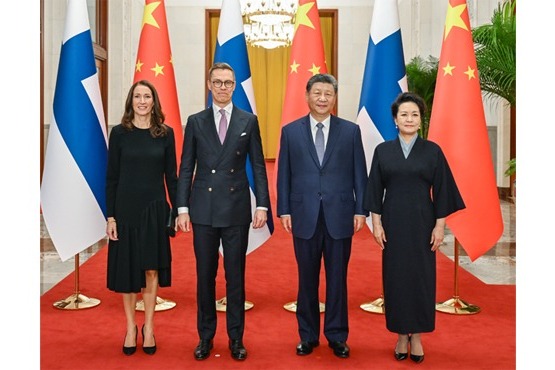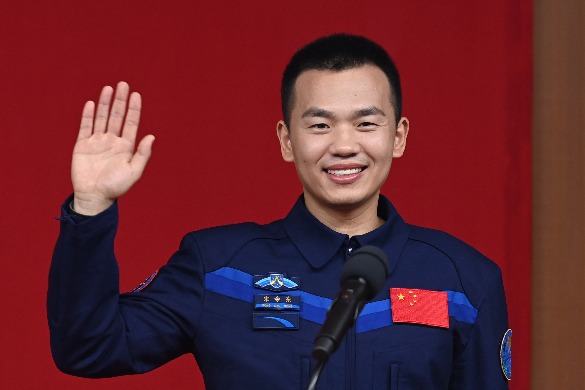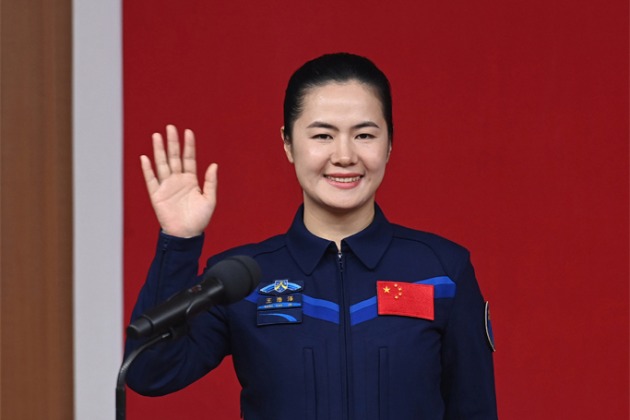Xi's Philippines trip sealed friendship

Editor's note: China Daily is publishing a series of stories reviewing President Xi Jinping's visits at home and abroad in the past decade, to showcase his vision for development in China and the world.
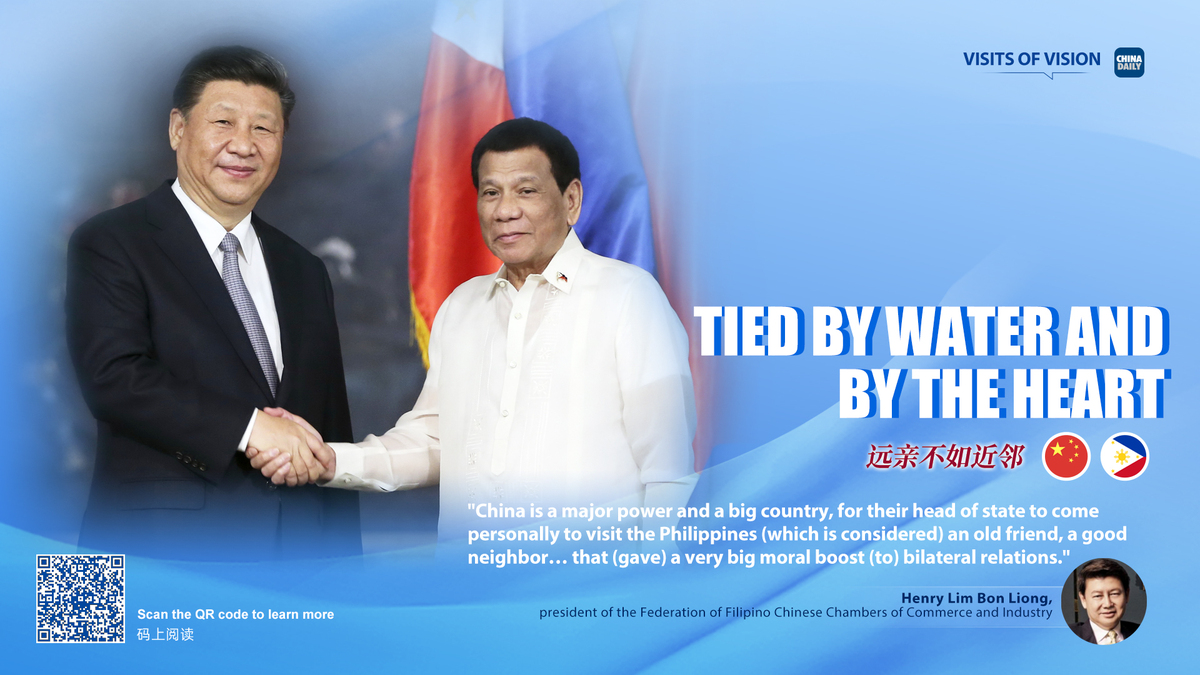
Leaders 'drew an ambitious blueprint' for development of bilateral relations
Filipino entrepreneur Wilson Lee Flores can still recall the first time he saw President Xi Jinping in person. It was in November 2018 at a dinner in Manila held in honor of the first Chinese leader to visit the Philippines in 13 years.
Flores, honorary chairman of the Anvil Business Club, an association of Filipino-Chinese entrepreneurs in Manila, said Xi left a strong impression on him, even though they did not have a personal encounter.
Xi "came across (as a) very dignified leader", Flores said. Among Philippine media, business and government officials, Xi is regarded as a "strong-willed, dignified yet friendly leader", he added.
Henry Lim Bon Liong, president of the Federation of Filipino-Chinese Chambers of Commerce and Industry, who was also at the state banquet, had a similar impression. Xi is "very friendly, a jolly good fellow … someone that you can trust, that you can rely on", he said.
As Filipino-Chinese businessmen, Lim and Flores welcomed Xi's visit because it underscored the importance of China-Philippine relations. Lim said that as someone who is "Chinese by blood (and) Filipino by heart" it gave him great pleasure to see both "come together (and) seal their friendship".
Flores said, "China is a major power and a big country. For their head of state to come personally to visit the Philippines, (which is considered) an old friend, a good neighbor… that gave a very big moral boost to bilateral relations."
In Asian culture "nothing beats personal encounters and personal meetings between leaders", Flores said, and Xi's visit expressed not only the president's personal goodwill, "but his country's goodwill toward the Philippines".
In a joint news conference with Philippine President Rodrigo Duterte, Xi emphasized the close bilateral ties. The two leaders "charted the future course of China-Philippines relations and drew an ambitious blueprint for its development", Xi said.

"As fellow developing countries in Asia, China and the Philippines face similar developmental challenges, which make us natural partners with a common destiny," Xi said.
Both sides agreed to elevate the bilateral relationship into one of comprehensive, strategic cooperation.
"This vision charts a clear course for China-Philippines relations, and it sends a strong message to the world that our two countries are partners in seeking common development", Xi said.
China will continue to "do its modest best to support the Philippines", and this support "will come in many forms, from lending a hand to your counternarcotics and counterterrorism struggle, to helping to repair roads and bridges", he added.
Xi also said China would import more goods such as coconut and frozen fruit from the Philippines, provide government scholarship grants and arrange for Philippine teachers of English to work in China.
Twenty-nine cooperation documents were signed during Xi's visit, 11 of which were related to infrastructure. These included an infrastructure collaboration program; joint development of industrial parks; feasibility studies for road and bridge projects in central and southern Philippines; and a loan agreement on the New Centennial Water Source-Kaliwa Dam Project. All these infrastructure projects were in line with the Duterte administration's flagship infrastructure development program, Build, Build, Build.
Lim, the Federation of Filipino-Chinese Chambers of Commerce and Industry's president, said Build, Build, Build is one of the cornerstone programs of the Duterte administration, and for it to be feasible, the Philippines will need huge resources.
China is a "good ally" for the program, Lim said.
Ernesto Pernia, former Philippine Socioeconomic Planning Secretary, recalled that infrastructure financing was among the highlights of Xi's state visit. Pernia was among the Philippine Cabinet officials who met with Xi during his state visit to Manila.
Xi's visit was "essentially a diplomatic reciprocation" for the state visit that Duterte made in October 2016, Pernia said.
"It somehow strengthened the relationship between the two countries, especially the friendship between the two leaders. A long litany of infrastructure projects to be funded by China's official development assistance was discussed" by ministers and secretaries "in the presence of the two heads of state", Pernia added.
Michael Ricafort, chief economist of Rizal Commercial Banking Corp, said China is among the Philippines' biggest foreign donors, and Xi's visit led to a "sharp increase in (financial) commitments given by the Chinese government to the Philippine government, (especially) in terms of finance and other assistance for these huge infrastructure projects".
The Philippine National Economic and Development Authority said that China had committed to financing 12 of the 37 approved infrastructure projects included in Build, Build, Build.
China provided a 4.85 billion pesos ($91.2 million) worth of grants for two projects-the Estrella-Pantaleon Bridge, connecting the cities of Makati and Mandaluyong, and the Binondo-Intramuros Bridge, which links the Manila district of Binondo, known as the city's Chinatown, with the capital's historic district of Intramuros. The two bridges are now operational.
China also provided 4.37 billion Philippine pesos for the Chico River Pump Irrigation Project, which will be inaugurated on June 25 and is expected to irrigate more than 8,000 hectares of farmland in the northern Philippine provinces of Cagayan and Kalinga.
Ricafort said the two bridges are important for easing traffic and increasing productivity. The economist said he looks forward to the completion of the Kaliwa Dam Project, because it will secure a potable water supply for the capital region.
China's financing of the Binondo-Intramuros Bridge is a "very good symbol of friendship that has been built and sustained over (several) centuries", Ricafort said, alluding to the long trade history between the two countries.
Chinese merchants have been sailing to the Philippines since the 10th century and bartered with ceramics, silk and beads for Philippine pearls, tortoise shells and hemp fabric. Chinese-Philippine trading thrived even during the Spanish colonial period. Some Chinese traders would eventually settle in Binondo, marry Philippine women and create a Philippine-Chinese community.
Xi discussed the centuries-old ties between the two countries in a signed article with the headline "Open up a new future together for China-Philippine relations".The article was published in three Philippine newspapers just before his visit.
- Jilin's autumn landscape transforms into colorful palette
- China's healthcare milestones over 75 years
- Jiuquan's chili industry celebrates bumper harvest
- Direct all-cargo air route links China's Hubei, Hong Kong
- Mainland urges Taiwan to return to 1992 Consensus
- China pledges to promote renewable energy use amid green transition

















